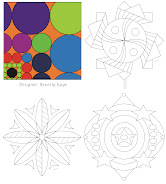Digital Dexterity
A few years ago a young boy came to me with his completed work of digital art and my expectation had been that I would either type his name at the bottom, or print the picture and have write his name himself on the paper page. It was with renewed expectation about children's mouse skills that I appreciated how he wrote his name in green digital ink on the digital page. His very matter of fact satisfaction with his newly developed skill paved the way for himself and other children to extend their own possibilities.
Learners as Teachers
One four year old girl had just finished making her PhotoStory3 movie and she wanted to change the colour of her text on the movie. A few runs through that process with the adult teacher and soon this four year old was teaching her friends. When introduced to other programmes they recognised a difference in the programme interface and wanted to explore the slightly different method of changing the colour of the text. The pride in this young girls face as she taught her peers, and her matter of fact satisfaction when her friend also acquired this skill took us all to a higher level of expectation and possibilities.
A young blogger expects Web2.0 capabilites
A four year old leaned out the window at Kindergarten and said "Hey Beverly, I left a comment on the blog" - and she had! This same girl wanted to see on the computer, the school she was to attend when she turned five. When the website was downloaded by an adult teacher, the four year old searched the page and said "Hey, where can I leave a comment?" - unfortunately the school had not yet entered this young girls world of Web2.0. When she finally arrived at school on her 5th birthday, this new entrant handed over the kindergarten business card and said "This is my blog address, you will be needing that!"
What are the benefits?
You might read the above examples and wonder how they answer such a question. These are but small instances highlighting the impact of ICT on children as they assess their own learning, explore with fascination and expectation at what computers can do for them. This expectation goes with them to school. They have a level of expectation about their learning that is best supported through the use of ICT in education. Technology is an invaluable asset when we begin to explore what ICT can do for us and our students, and when we begin to view education as a collaborative, relevant, living opportunity.
Also Read:
What are the benefits of Technology in Education? Practical processes children use when engaging with technology including a list of links to kindergartens and schools who blog about their technology learning and their open exploration of education in all areas.














